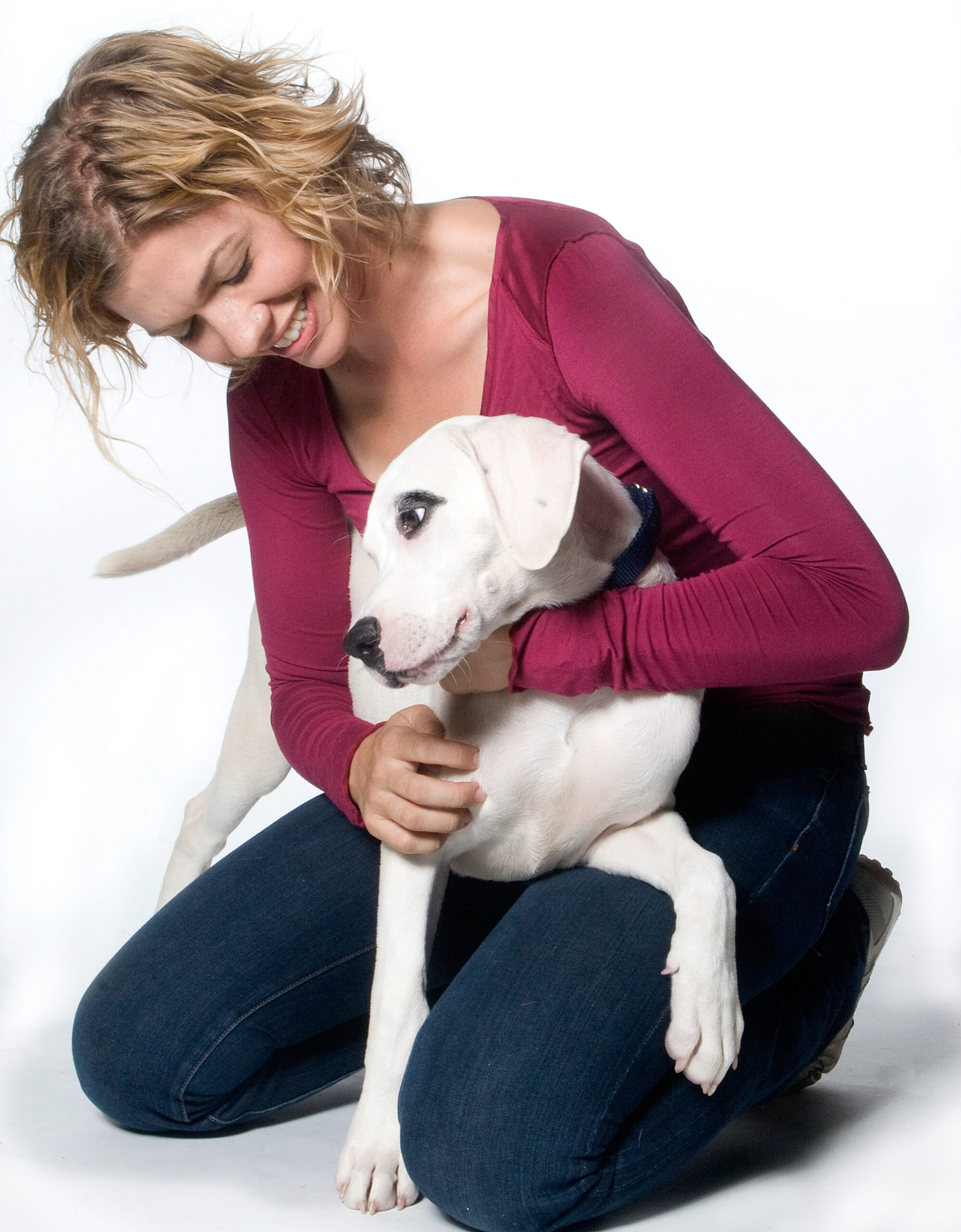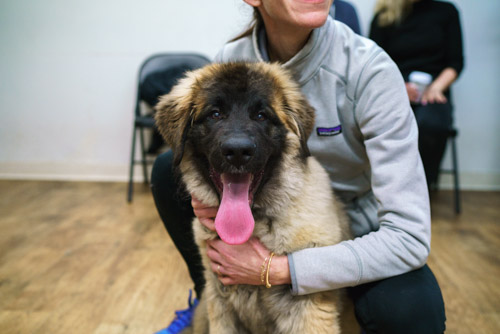
How to Deal With Dog Health Issues in NYC
Dogs in NYC face the same health challenges as any dog, and then some, to live a long, happy, healthy life. As pet parents, we always want to do the best for our canine companions, whether that is feeding them the right food, giving them enough mental and physical exercise, or providing them with the health care they need. For all pets, vaccines are an integral part of maintaining their health, as diseases don’t pick and choose which animals they infect.
How To Take Care Of Your Dogs Health In NYC
Unlike most suburban and rural dogs, New York City dogs are exposed to lots of people, dogs, and even wild animals on a daily basis, which means there are many opportunities for your dog to contract diseases and get sick. Because of how easily diseases can spread in a city, you don’t want to take any shortcuts when it comes to your dog’s health. Cutting corners in health prevention can lead to otherwise avoidable consequences to their health, as well as the health of the people and other pets around them.
When you have your first vet visit with your new dog, whether they are a puppy, or an adult, your vet will want to make sure your dog has the protection they need. Some vaccinations will be strongly recommended, while others are mandatory for pets living in NYC.
What Are The Health Related Requirements A Dog Owner In NYC Must Meet To Be In Compliance With The Law?
In the United States, the rabies vaccine is required nationwide. Other vaccine requirements can vary state by state, so it is essential that you talk to your local veterinarian to insure that you meet the local laws where you and your dog reside. It is also prudent, if you plan to travel to other areas, to check on that regions vaccination requirements. In NYC, dogs are legally required to receive rabies vaccinations, and owners must ensure they are up-to-date on these vaccinations. A dog owner should be able to show proof that their dog has a current dog license and rabies vaccination while in public. The specifics are as follows:
- New York State and therefore NYC mandates that all dogs must be vaccinated against rabies.
- The initial rabies vaccination must be administered by the time the dog is 4 months old.
- If you obtain a puppy or adult dog and are unsure of its vaccination status, it is likely that your vet will recommend getting started with the initial rabies vaccine treatment.
- A booster shot is then required one year after the initial vaccination, and subsequent rabies vaccinations are typically required every three years. The frequency of the ongoing vaccine booster schedule will vary based on the type of vaccine used and veterinarian’s recommendations.
- Be sure to be aware of when your dogs next rabies vaccine is due, especially if you switch your veterinarian that has your pets medical records on file and would have sent a reminder. Failure to keep rabies vaccinations up-to-date can result in fines, or even confiscation and confinement of your dog, particularly if there has been a biting incident.
- Owners must be able to produce proof of a current dog license and rabies vaccination while in public. For detailed information on Dog License requirements see: https://andreaarden.com/dog-training/what-you-need-to-know-about-dog-licensing-in-nyc/
- The easiest way to insure you have proof that your dog is registered in NYC and is up-to-date on the rabies vaccine is to affix the provided tags to the dogs collar or harness. The tags are a bit large for tiny breeds, but there are numerous creative options for small dog owners to guarantee they have the necessary proof of license and vaccine if asked to show it.
- All dogs in New York City must have a valid dog license issued by the Department of Health and Mental Hygiene (DOHMH). The license will also require proof of rabies vaccine. See our article on What You Need to Know About Dog Licensing In NYC for details.
Vaccinating your dog for rabies is the law, but it is also a matter of protecting your dog from a deadly disease that can be avoidable. There are several vaccines that although not required nationwide by law, they are highly veterinary recommended and generally accepted, such as the DHPP vaccine which is a combination that helps prevent four viruses: canine distemper, hepatitis, parainfluenza, and parvovirus. These core vaccines may be for things that you are less familiar with, but your veterinary practice will expect to provide their canine patients living in NYC with these protections:
- Distemper vaccine – distemper is a viral disease that attacks the respiratory, nervous, and gastrointestinal systems. It is often fatal. This is included in a core vaccine.
- Parvovirus vaccine – is an essential vaccine that protects dogs against a highly contagious virus. Puppies are particularly susceptible to contracting and falling very ill from this virus.
- Bordetella vaccine – helps to protect dogs from some strains of kennel cough. Kennel cough is highly contagious in social settings such as dog parks, grooming facilities, and kennels. Pet related businesses are likely to require proof of this vaccine for dogs entering and using their facilities.
- Canine influenza vaccine – protects dogs against strains of this contagious virus that effects the respiratory system. Local veterinarians will be aware if there are outbreaks in your area.
The vaccines listed above are the most common for pets to receive in the New York City area, but there may be other non-core vaccines from which your pet can benefit from. Be sure to ask your veterinarian about core and non-core vaccines, so you can ensure your pet gets the right ones for the lifestyle you share together. For instance some dogs may benefit from getting a Leptospirosis vaccine while others may not need a Bordetella vaccine. Consulting with your veterinarian will help insure your dog gets they protection needed for where and how they live.
How Often Should My Dog Be Vaccinated In NYC?
The frequency at which your pet needs to be vaccinated is determined by several factors, including their age and exposure risk, as well as the particular vaccine. Puppies will require different vaccines at different intervals than adult and elderly pets, while pets that don’t leave their home often may need fewer vaccines than those that do.
Additionally, each vaccine your pet requires will have different booster needs to maintain protection. Some will have long-term protection and require boosters less frequently, while others will need them more often. Your vet practice should provide you with a list of all your dogs vaccines and the date they expire/need to be renewed. During routine annual veterinary visits be sure to have an open dialogue to raise any questions and concerns you have about the vaccines your pet needs and the best schedule to meet those needs. Also ask about possible reactions your pup might have to a vaccine, be prepared, and report any side effects and concerns to your vet. There are a few reasons why some dogs might not be able to be vaccinated, including age, allergies, and pre-existing medical conditions. There may be alternatives to some vaccine boosters, such as titers for you to explore. Discuss what options are available for your dog.
Do I Really Need To Vaccinate My Dog?
Keep in mind that you are not only vaccinating your dog for its own protection. There are several important reasons for vaccinating dogs that live in a city environment:
- Preventing the transmission and contraction of diseases.
- Protecting yourself and public health. There are some diseases that dogs can get that can spread to people. By vaccinating your dog, you are not only protecting your dog and the other dogs in your community but people too.
- It could save you money and heartache in the long run by preventing your dog from becoming very ill and needing expensive treatments for dangerous and avoidable diseases.
While your main priority is to protect your pet, you will play an indispensable role in your community, safeguarding against disease and illness transmission.
Prevention
Disease isn’t the only health risk you should seek to prevent your dog becoming ill from. Parasites can be extremely problematic – ranging from irritable, to causing life-long debilitating problems, to even dangerously life threatening illness. There are 3 key culprits to be aware of, but the good news is that with proper preventative treatment, the health problems are avoidable. Be sure to provide your dog with medications to prevent heartworm (and other worms), ticks, and fleas. There are numerous treatment options ranging from monthly oral and/or topical administration, to treatments that are only required a few times of year. The right choice for your dog will depend on numerous factors such as age, size, exposure risk, and drug sensitivities. What’s right for one dog is not necessarily the best choice for another. Do some research and have a discussion with your veterinarian to determine the best protection plan for your dog.
What Are The Health Risks For Dogs Living In NYC And How Do I Best Avoid Such Risks
Typical health risks for dogs in city environments are not always unique to the urban environment. City dogs share the same general health problems with their suburban and rural counterparts. What city dogs may be more likely to encounter will be things that relate to living in a more densely populated area – more densely populated by people, pets, garbage, rodents, rodenticide, and even wildlife in the cities wonderful parks.
Perhaps the simplest and best way to prevent your dog from being exposed to unwanted problems is to follow the leash laws so your dog is always being closely supervised by you when out and about on walks. NYC law mandates that all dogs must be on a leash no more than 6 feet long when in public spaces unless where and when it is posted otherwise. It is also the law to pick up and dispose of your dogs feces.
Preventative training, like teaching your dog to not pick up trash from the street or lick the sidewalks goes a long way in keeping your dog healthy in NYC. Training your dog to walk nicely on a leash, be responsive to you, and behave mannerly around other dogs and people is key to your ability to protect your dog from danger. Your dogs mental health is also important. Be sure to expose your dog gently to it’s urban environment to help insure your dog is comfortable and thriving in NYC. If your dog seems antious or fearful, consider consulting with a professional dog trainer who can help you to improve your dogs emotional response to the world they live in. Like humans, a dogs mental health can effect their physical well-being.
Raising a healthy dog – NYC Dog Health Tips
Tips for raising a healthy dog in NYC aren’t that different from the sensible health choices advisable for their humans.
- Choosing a healthy diet that avoids extras containing additives like artificial colorings and flavors, chemicals, sugar, salt, oils, and spices that your dog doesn’t need and are not great for their health.
- Providing an exercise regiment that is adequate and appropriate for your dogs age and type.
- Approaching exercise responsibly. If your dog has put on a bit of weight or become inactive, gradually make adjustments to improve your canines fitness level.
- Making sure your thinking dog gets to use their brain; a health requirement that is often overlooked in pet dogs, especially those living in city apartments with busy career people.
- Providing daily training, challenging food puzzle toys, and outings to address your dogs individual mental exercise/health needs.
- Preventing your dog from chasing and potentially interacting with birds, squirrels, rats, strays, and other wild animals.
- Taking your dog to their veterinarian for annual physical exams, and inoculations.
- Bringing your dog to the veterinarian if you suspect there is a health issue in a timely fashion.
Where should I Go If My Dog Gets Sick?
Having a veterinarian or vet practice that you visit routinely establishes a familiar source for you and your dog to rely on should your dog need medical attention. Having a regular vet that is knowledgeable about your dogs health history will streamline the care given. You may also find it easier to get in to see a vet quickly if your dog is a pre-existing patient. Some vet practices reserve a few appointments daily to accommodate emergencies. You may need to pay a bit more to get into an emergency spot, but it affords you the ability to see the vet quickly.
If you are getting a puppy or a new adoption and need a vet you can ask friends, family, and neighbors with pets for recommendations. You can also get more feedback on a recommendation by reading reviews. You may find a vet way across town or in another borough that is great, and just like a human doctor, it may be worth traveling a bit further to get the quality care and bedside manner you seek. It is however also really advantageous to have a local vet that is convenient and quick to get to. Weigh the pros and cons in picking the right vet for you. If you have a car or a small dog that is easy to transport distance may not be as big of a deciding factor. If you have a larger dog and no personal means of transportation, choosing a vet you can walk to may be prudent. The best case scenario would be to find a good vet, that you like and trust, close enough to your NYC home that you can get there quickly on foot (or a short cab ride away).
What do I In An Emergency?
Emergencies often do not happen during regular office hours. If they do, a call to your veterinarian will help you now if you have time to wait for an appointment or need more immediate or specialized care. It is wise to know your best emergency options ahead of time, such as the closest 24 hour emergency veterinary hospital or urgent care in your neighborhood..
It is extremely stressful to be in a situation where your pet is ill or has had an accident requiring immediate medical attention. To help make that situation more manageable, do some research and have on hand the names, addresses and numbers of your local 24 hour emergency vet hospitals and clinics. Store this information in your phone or somewhere you can access the details quickly so you can get your dog medical attention promptly.
Veterinary hospitals and urgent care style practices open or relocate frequently, so be sure to check for your specific area so you have the best up-to-date choices available. Remember, keep this information somewhere that it is readily available to you. You will be so grateful you did this work ahead of time should you find yourself in an emergency pet health situation.
Emergency Pet Transportation Options
How you will get your dog to an emergency care facility is another thing you’ll be grateful to have looked into before you find yourself in an emergency situation. Options for transporting smaller dogs are always going to be greater and easier than larger dogs, but it’s good to know that dogs of all sizes are allowed in NYC taxis as long as the driver is ok with it.
You may need to hail a few cabs before one comes by that will take you and your fury beast. If you have a small dog it is best to have them in their travel bag or in your arms. If you have a large dog try keeping your dog sitting mannerly at your side in full view while you request your ride, and bring a towel for your dog to sit on. Don’t forget to tip. A courteous and grateful dog owner will boost the cabbies impression of responsible dog owners, keeping them open to picking up the next canine rider in need. Uber and Lyft type services also offer a “pet-friendly car” feature so you can filter for your ride accordingly.
For a thorough guide to your many transportation options and restriction see our comprehensive article: https://andreaarden.com/dog-training/dog-friendly-transportation-in-new-york-city/
In addition, there are private pet transport companies in the metropolitan area to help people who do not have vehicles of their own, get their dogs where they need to go.
Emergency Financial Preparedness
Another measure to take ahead of time is having a viable payment method to cover an emergency visit to a veterinary hospital. Some people may have an account set-up with savings allotted for the sole purpose of pet care, but most people are not quite that prepared. The Care Credit card is one possible option to have on standby should you need it. It is designed to use for medical purposes, human or veterinary. It has a no interest payment plan with time frame limitations but strict penalties should payments not be made on time. Personally we have found this to be a very useful and reassuring payment option to have available should the unfortunate need arise.
Pet insurance
Having a pet insurance plan in place can also be a great relief if the plan covers the particulars of your dogs health emergency. Pet insurance can also be useful with the bills of routine preventative care, annual wellness exams, and vaccines depending on the plan you chose.
Similar to human health care plans, figuring out what they cover, what they don’t, deductibles, and other details can be overwhelming, and the language a bit daunting. If you have a vet practice you use regularly, ask them if there is a pet insurance plan that they are familiar with and accustomed to using. That could help to streamline the process a bit for you. Asking friends and neighbors if they have a plan and hearing what they like and don’t like can also provide a good starting point. Look over the various plans to see what they cover so you get the coverage you want, and know what you can expect. There are many different plans and many different prices, but you basically have three primary types of pet insurance:
- Accident-only pet insurance – As the name suggests, this type of pet insurance only covers accidents your pet has. For example, if your dog hurts their leg while playing fetch, this type of policy would cover it. This type of policy should also cover testing, procedures, and medications related to covered accidents.
- Accident and illness pet insurance – Just like the type of policy listed above, accident and illness pet insurance will cover treatment for an accident your pet has. It should also cover both common and serious illnesses, including hereditary conditions. Coverage should include testing, procedures, and medications related to covered accidents or illnesses.
- Routine wellness pet insurance – The final type of pet insurance is designed to cover routine preventative and wellness care for your pet. It will typically cover routine checkups, vaccines, flea and heartworm prevention, and other similar care. However, it won’t cover illnesses or accidents. Rather than being a standalone plan, routine wellness pet insurance is often an optional add-on to your existing coverage. Adding this type of coverage to an accident and illness policy theoretically could cover most of your dog’s veterinary expenses.
Should I Get Dog Heath Insurance?
Here are some basic points to consider when deciding if dog health insurance is right for you, and if so, what to look for in a plan:
Pet insurance can help pay for unexpected, potentially expensive veterinary costs.
Pet insurance can provide some financial protection if faced with extremely costly veterinary care like surgeries, cancer treatments, and emergency care.
Pet Insurance can eliminate the need to choose between your financial well-being and your pets health, even life.
Knowing you have some financial cushion can give you peace of mind reducing stress when your dog gets sick or injured.
With pet insurance, you might be able to afford better treatment options and prevent your dog from suffering due to financial constraints.
There are several types of pet insurance, so you can choose the policy that works best for you.
The amount of coverage you choose will effect the premium. The more coverage, the higher the premium.
You could end up paying monthly or annual premiums for years and never need use them.
If you have a financial situation allowing for a large emergency fund then pet insurance may be less attractive to you.
Some policies have coverage limitations such as deductions, annual limits, waiting periods, and exclusions, which can have an impact on the actual amount you get reimbursed.
Most policies do not cover pre-existing conditions at all.
Pet insurance doesn’t usually pay the veterinarian directly. Instead, you’ll pay the bill and submit it to your pet insurance provider for reimbursement. One of the benefits of this system is that you usually are not limited as to which veterinarians use.
What Does Dog Health Insurance Cost In NYC?
There are several factors that will effect the cost of Dog Health Insurance coverage in NYC. A reasonable ballpark figure to give you some idea would be about $63 monthly premium. This price would be based on a $500 deductible, a 90% reimbursement rate, and a $10,000 annual coverage limit. It is advisable to compare quotes and be clear about what is, and what is not covered in the policies from different insurance providers when looking for the best coverage and price.
Factors Effecting Cost:
- Younger dogs generally have lower premiums. It is best to start a pet insurance plan on a young pup with no preexisting health conditions.
- You can expect to pay more if your dog is older.
- Certain breeds may have higher premiums due to breed specific tendencies for certain health issues.
- In general, small-breed dogs tend to have cheaper pet insurance than large-breed dogs.
- Broader coverage will cost more. Accident and illness policies will cost more than policies only covering accidents.
- Adding routine wellness care to your policy will increase your premium.
- Higher deductibles and lower reimbursement rates will typically result in lower premiums.
Is Dog Health Insurance Worth It?
The value of having dog health insurance in NYC is an extremely personal evaluation. It is often determined by an individuals financial circumstances and risk tolerance. Ultimately, what you get out of pet insurance depends on how much your pet uses it as well as the number and types of claims you make, which is hard to predict. Financially speaking, plans only have good value if you use them.
There may be years when you spend more on pet insurance than you save on veterinary care. But if peace of mind is of value to you, and you don’t have the financial means to manage an expensive accident or illness, the risk of not having pet insurance could be considerably larger. Very few pet emergencies cost only a few hundred dollars. Most cost several thousands dollars. When accidents and severe illnesses occur, some pet owners find themselves in the heartbreaking situation of choosing between their own financial well-being and their dog’s health. Given all of this, pet insurance may be worth it for many pet owners.
In Conclusion
Having a dog in NYC presents itself with certain health risks typical of all dogs as well as some more characteristic of living in an urban environment. Being aware of and meeting your individual dog’s mental and physical needs is essential to raising a healthy dog. Preventive care plays a crucial role in ensuring your dog does not become unnecessarily ill. Factors determining what is best for your dog include age, breed, health status, and lifestyle/exposure. Being connected to and knowing your dogs typical behavior will help direct you to making adjustments in their routines, seeking training advice, and getting them medical attention when needed.
Educate your dog with Andrea Arden and her team.
New York | Los Angeles | Connecticut
Share
- Group Classes
- Private Lessons
- Virtual Training
- Puppy Play Groups
- Puppy Training
- Articles & Advice





